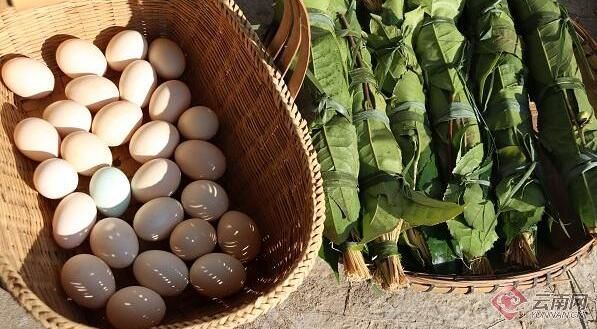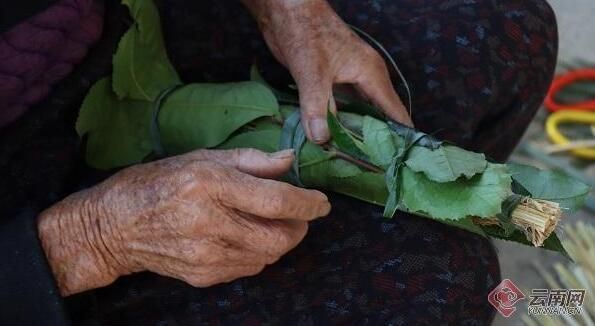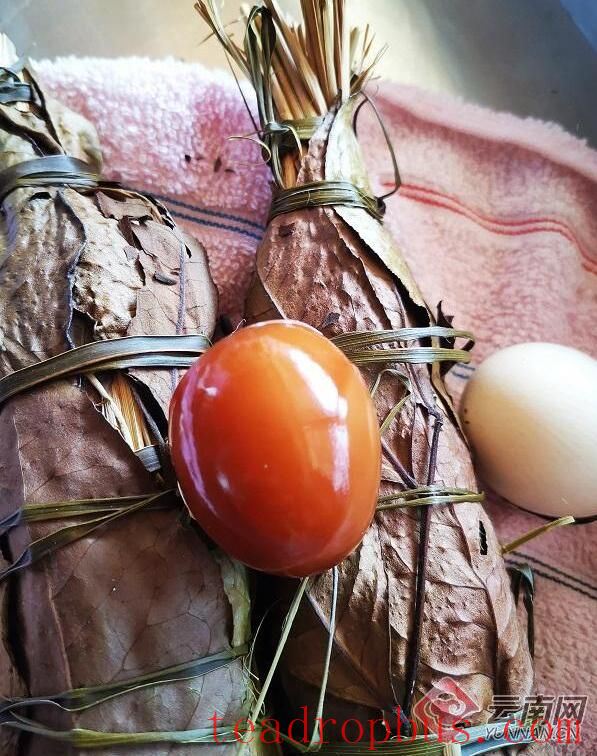Have you ever heard of baked Tea eggs? These baked tea eggs, produced at Jiade Manor in Jiajia Town, Zhenyuan Yi, Hani, and Lahu Autonomous County in Pu'er City, boast a unique production technique that has been patented.

Raw materials and wrapped eggs
The process of making baked tea eggs involves “one selection, two choices, and three attentions.” “One selection” refers to selecting free-range chicken eggs from forested areas, which are then cleaned with a cloth and water and set aside for use. “Two choices” involve selecting rice straw and tea twigs and leaves; the straw should be resilient and not break easily, while the tea twigs and leaves should come from century-old large-Leaf tea trees, with large, mature leaves that provide ample fragrance. “Three attentions” means carefully wrapping and tying the eggs with fresh reed leaf ropes using rice straw and tea twigs and leaves before baking; having confidence in the packaging and sealing of the tea and rice aromas when placing them on the tray; and patiently adjusting the temperature between 50 and 120 degrees Celsius for one hour each, followed by a return to 95 degrees Celsius for 15 hours before removing them from the oven.

Production process

Finished product
After baking, the tea eggs have a tight, shrunken skin due to dehydration. They are extremely elastic when eaten hot, offering a fragrant, glutinous, and soft texture, and they have a taste similar to braised eggs when cooled. They can be stored at room temperature for up to six months. These baked tea eggs are very popular among residents in cities such as Beijing, Tianjin, Shanghai, and Guangzhou outside of their home province.